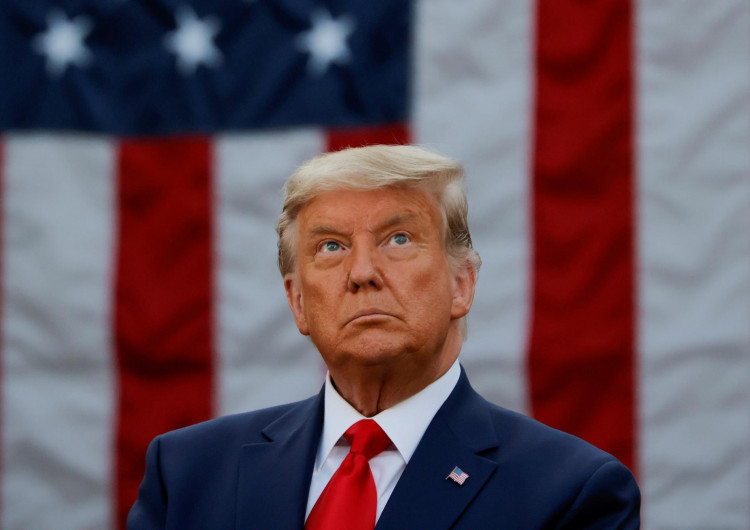Sen. JD Vance (R-Ohio) has come to the defense of former President Donald Trump following controversial remarks made at a rally in Dayton, Ohio, last Saturday. During the event, Trump referred to some undocumented immigrants as "not people" and warned of a "bloodbath" for the auto industry and the country if he is not reelected in November. The comments have drawn criticism from various quarters, with the Biden-Harris campaign accusing Trump of wanting "another January 6."
Speaking on "Fox and Friends" on Sunday, Vance described the attacks on Trump as "ridiculous" and argued that the former president's comments were taken out of context. "He was saying that if you allow the Chinese to run the [electric vehicle] industry, which is what Biden's policies are promoting, you're going to destroy the industry in this country. It's going to be a bloodbath for the auto industry. He's 100 percent correct about that," Vance said.
The Ohio Republican, a staunch ally of Trump, also took a dig at the media's coverage of the remarks, claiming that they are willing to "lie about it for the next eight months" because they "cannot win this election if it's about Joe Biden's record, the border policies, the inflation and so forth."
Trump's campaign spokesperson, Steven Cheung, dismissed the notion that the "bloodbath" comment was related to violence, clarifying that the former president was referring to cars made outside of the U.S. "If you actually watch and listen to the section, he was talking about the auto industry and tariffs," Cheung told the Washington Post. "Biden's policies will create an economic bloodbath for the auto industry and auto workers," he added.
However, the Biden-Harris campaign issued a scathing statement in response to Trump's remarks, stating that the former president "wants another January 6, but the American people are going to give him another electoral defeat this November because they continue to reject his extremism, his affection for violence, and his thirst for revenge."
The campaign added, "This is who Donald Trump is: a loser who gets beat by over 7 million votes and then, instead of appealing to a wider mainstream audience, doubles down on his threats of political violence."
Former House Speaker Nancy Pelosi also weighed in on the controversy, questioning what Trump meant by his "bloodbath" remark. "We just have to win this election because he's even predicting a bloodbath. What does that mean? He's going to exact a bloodbath? There's something wrong here," she told CNN on Sunday.
Despite the criticism, some members of Trump's party have come to his defense. South Dakota Republican Senator Mike Rounds told CNN, "With regard to the autoworkers that he was talking to, he is showing them or he's telling them what has been an economic downturn for them." Louisiana Republican Senator Bill Cassidy noted that the definition of "bloodbath" could also refer to an economic disaster, particularly in the context of the auto industry in Ohio.
However, Cassidy also acknowledged that Trump's rhetoric raises questions about his fitness for the presidency. "The general tone of the speech is why many Americans continue to wonder, 'Should President Trump be president?' That kind of rhetoric, it's always on the edge. Maybe doesn't cross, maybe does, depending upon your perspective," he said.
Trump's rally also featured an escalation of his attacks on undocumented immigrants, with the former president stating, "I don't know if you call them people. In some cases, they're not people, in my opinion. But I'm not allowed to say that because the radical left says that's a terrible thing to say." These remarks are reminiscent of Trump's past comments, dating back to his 2016 campaign when he accused Mexico of sending rapists and criminals across the border into the U.S.
The controversy surrounding Trump's remarks comes as the 2024 presidential race begins to take shape, with the former president facing potential challenges from within his own party. Former Vice President Mike Pence recently announced that he would not be endorsing Trump, citing "profound differences" between them on a range of issues, including Pence's constitutional duties on January 6.






